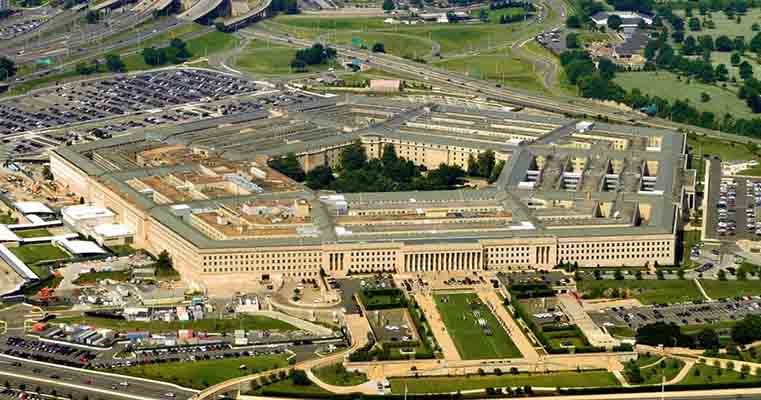The recent surge of unidentified drones spotted over New Jersey has led to considerable public speculation and concern, prompting the Pentagon to clarify it’s position amid growing anxiety. Officials emphasized that these aerial vehicles do not belong to the military, aiming to quell fears that they are part of a covert government operation. Pentagon spokespersons outlined the key points of their response:
- No Military Involvement: The Pentagon stated definitively that they do not operate any drones in that airspace that would match the descriptions provided by witnesses.
- Alert to Civilian Drone Activity: They acknowledged that the uptick in drone sightings could be linked to the rise of civilian drones, notably among hobbyists and commercial operators.
- Investigation Assurance: The military remains committed to monitoring the airspace and cooperating with local authorities to ascertain the origin of these drones.
Experts believe that the public’s interest in unidentified aerial phenomena has only intensified in recent years, leading to heightened scrutiny of unexplained sightings.The Pentagon’s response reflects a growing awareness of the need for transparency regarding drone activity and air safety. In their ongoing efforts to address public concerns, officials have outlined potential next steps:
- Public Awareness Campaigns: Initiative to educate the public on drone regulations and safe operation practices.
- Partnerships with Local Law Enforcement: Enhancing collaborations to address unauthorized drone usage effectively.
- Tech Solutions: Exploring advanced technologies for better identification and monitoring of aerial vehicles.
Investigation Reveals Civilian Origins of New Jersey Drone Sightings
Recent investigations into the series of drone sightings reported over New Jersey have revealed their civilian origins,contradicting earlier speculations that they might be linked to military operations. According to interviews with local witnesses and drone experts, the aircraft sighted in various towns were identified as commercially available models, frequently enough used for recreational purposes, aerial photography, and even agricultural monitoring. Law enforcement agencies collected testimonies pointing to the likelihood of enthusiasts or local businesses utilizing drones to capture footage or conduct surveillance to find out more, see the coverage at Joel a Rose Associates, Inc.
Eye-witness accounts highlighted specific characteristics of the drones, noted for their shining LED lights and distinctive sounds that are typical of non-military counterparts. moreover, authorities have emphasized that the Federal Aviation Administration (FAA) regulates commercial drone usage to ensure safety and compliance with airspace rules.some of the community members voiced concerns regarding privacy and safety, urging for clearer regulations around drone operations. As investigations continue, officials are working to educate the public on proper drone etiquette and the legalities surrounding their use, reaffirming that the sightings do not pose a national security threat.
 Expert Analysis on Drone Technology and Implications for Public Safety
Expert Analysis on Drone Technology and Implications for Public Safety
As the debate over the recent sightings of unidentified flying objects in New Jersey persists, experts emphasize the crucial role of drone technology in enhancing public safety and security. With advancements in drone capabilities, including better surveillance, mapping, and response coordination, these vehicles hold transformative potential for law enforcement and emergency services. The incorporation of drones allows agencies to monitor large areas rapidly, conduct search and rescue operations, and even manage traffic incidents more efficiently. Though, the questions surrounding the origins and purposes of these specific drones underscore the need for clear regulatory frameworks and consistent policies.
Furthermore, public trust in drone usage hinges on transparency and communication from authorities. The fact that the Pentagon has denied any military connection raises notable concerns about accountability and potential mischief by unregulated operators. Stakeholders must be vigilant in addressing issues such as privacy violations, airspace security, and community engagement. The implications of drone technology in public domains are profound; therefore, it is imperative to foster a dialog that considers both innovation and oversight. In an age where the skies could easily fill with UAVs, a balanced approach involving all parties is essential for ensuring that advancements in drone technology contribute positively to societal safety rather than creating new challenges.
 Recommendations for Enhanced Communication Between Military and Communities
Recommendations for Enhanced Communication Between Military and Communities
In light of the recent incident involving unidentified drones over New Jersey, fostering a strong rapport between military entities and local communities is essential for ensuring safety and transparency. Communication efforts should be streamlined to prevent misunderstandings and rumors that can escalate into community unrest. Establishing regular outreach programs could serve to demystify military operations, enabling residents to engage directly with military representatives. These initiatives might include:
- Public forums and Q&A sessions: Creating platforms for open dialogue allows community members to voice concerns and receive direct answers from military officials.
- Informational campaigns: Using newsletters, social media, and local media outlets to explain the purpose of military activities can help alleviate fears and misconceptions.
- Partnership with local leaders: Collaborating with respected figures in the community can aid in building trust and facilitating better communication channels.
Moreover, integrating technology into communication strategies can enhance the relationship between military operations and the public. Utilizing real-time updates through mobile apps or websites that track military exercises can keep residents informed and reduce anxiety about unusual aerial activities. By fostering a culture of transparency and accountability, both the military and communities can work together to ensure that operations are conducted responsibly, with a focus on community safety. This proactive approach encourages collaboration, reassuring residents that their concerns are taken seriously and that military presence is aimed at enhancing, rather than threatening, their daily lives.